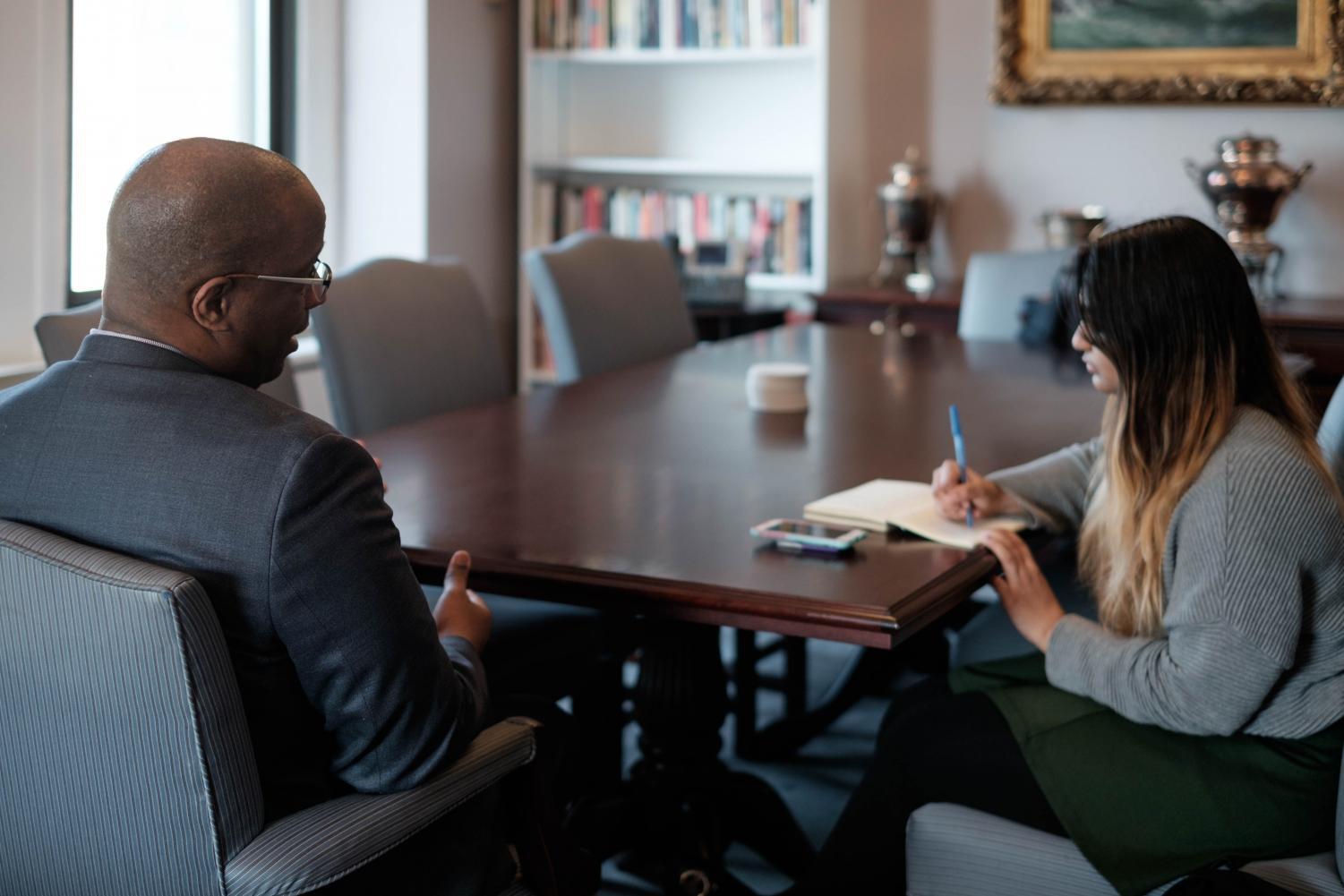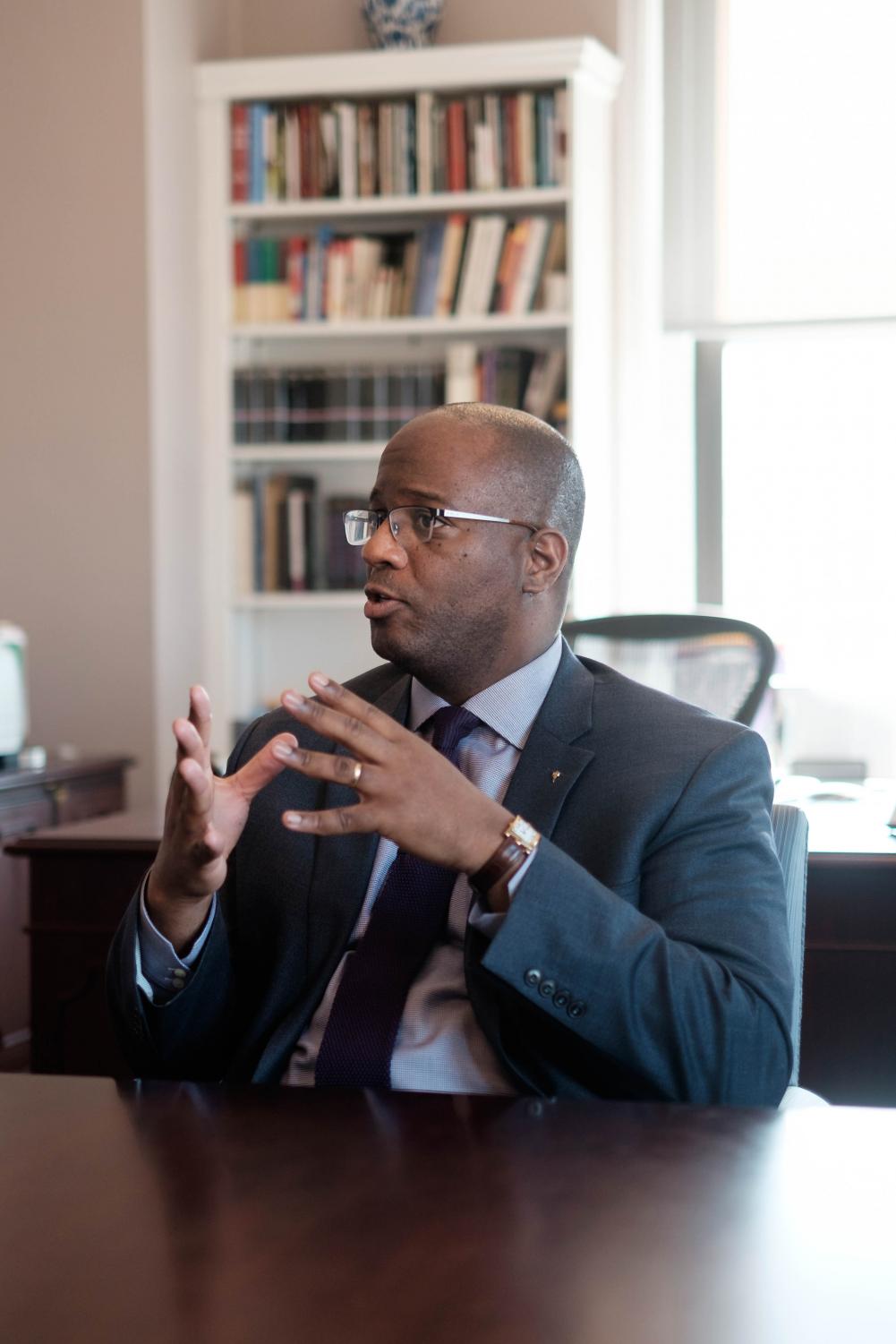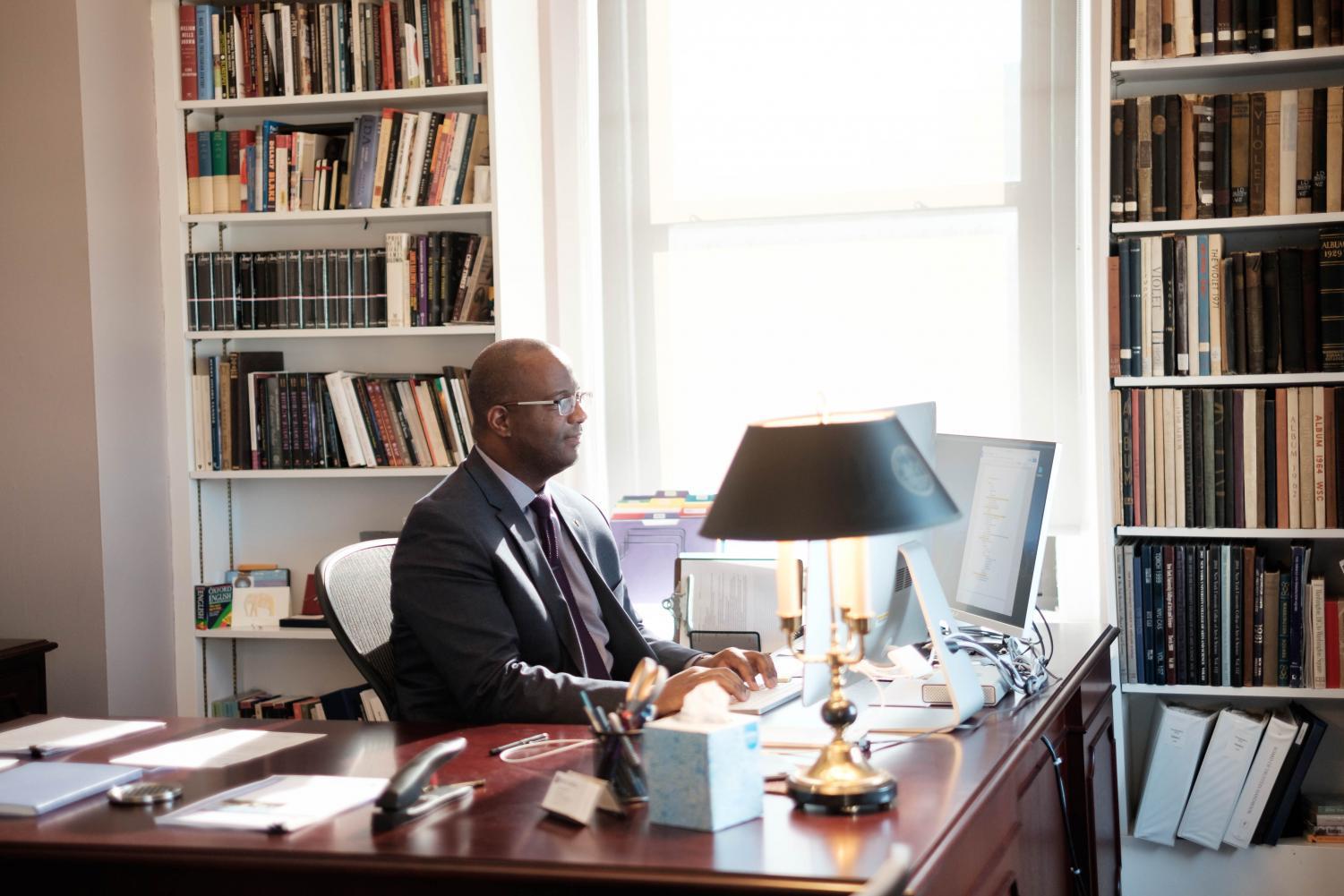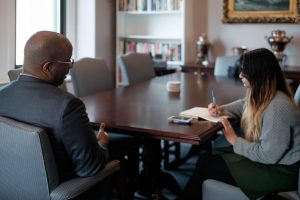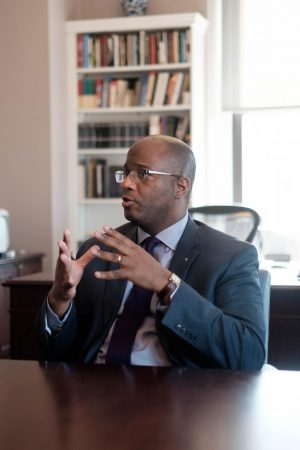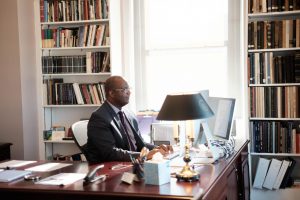CAS Dean Gene Jarrett: A Semester In
Gene Jarrett talks about his experiences as CAS Dean a semester in.
March 19, 2018
When College of Arts and Science Seryl Kushner Dean Gene Jarrett started his job at NYU last September, he wasn’t simply moving to New York City for a job — he was returning home.
Jarrett graduated from Stuyvesant High School and left New York to attend Princeton University and then graduate school at Brown University. He later worked at the University of Maryland, College Park and Boston University. Now, Jarrett works in an office on the ninth floor of the Silver Center for Arts and Science overlooking what’s considered to be NYU’s quad: Washington Square Park.
But Jarrett doesn’t just watch NYU from above — with an open-door policy, Jarrett makes sure to approach his role from many angles, encouraging communication with staff, faculty and students.
“Any student that reaches out to my office and wants to meet with me, I set up a time to talk with them,” Jarrett said in an interview with WSN. “I think I’ve been having a great time talking with them individually about NYU, where they’re coming from and their long-term goals.”
During his first semester at NYU, Jarrett noted its diverse, savvy student body. He said he’s observed how students have been able to creatively pinpoint and take advantage of the opportunities available to them in New York City.
Jarrett said he’s also discovered that NYU is a complex university, so it is very important that his decisions are made deliberately and in the best interest of CAS. He is also constantly thinking about CAS’s relationship with the rest of the university holistically.
“That’s a broader, kind of structural set of concerns that I have, but I think it’s also true that in this kind of environment, there’s just a lot of activity, and so you’re constantly in conversations with students and faculty, and I think it’s important to have clear lines of communication all around,” Jarrett said.
The working relationship between faculty and students is a feature of academic life at NYU that Jarrett aims to emphasize. Mentorship is of value to him, and he wants to encourage faculty to be there for students both in the context of the course they teach, but also in helping them build their long-term trajectories for their later years at NYU and into their professional lives.
One of his goals for the university is to elevate the faculty’s awareness of how important the students here are and how many of them want a personalized, intellectual relationship with their professors.
“I’ve pointed to a number of bits of information about how students, upon their entry, say that they would like to be either in a serious mentorship relationship or they’d like to participate in certain projects with faculty,” Jarrett said. “I’ve worked my way in talking with faculty in a variety of contexts about how that’s the kind of appeals or advocacies that students are saying or expressing, and that what can we do strategically to make sure that the concerns of the students are being fulfilled.”
It’s an ambitious goal, but not one he takes lightly. He has plans to prioritize mentorship with the creation of a task force.
“I plan by the end of this semester to establish a kind of a task force on mentorship where there’ll be a variety of faculty, I’d like to invite students, potentially some alumni, to think about how we can bridge the gap between the advising experience that students have and the potential mentorship experience that they could enjoy here,” Jarrett said. “I think that would have a long term benefit for students in the sense that as they’re making their way through, let’s say, general education here at the college and into a department with a certain kind of specialization, that all the while they’ll have their concerns about their career goals being addressed.”
Jarrett is also interested in the opportunities technologically enhanced education could bring NYU. He said he wants to create a systematic context in which conversations about this kind of education can occur: he wants to establish an advisory committee dedicated to this goal.
“I could provide certain kinds of guidelines for faculty as they’re thinking about developing courses that have certain technological innovations,” Jarrett said. “It could also provide a guidance in thinking about the learning outcomes of these courses on behalf of students and faculty both, and I think that this kind of committee could pave the way moving forward for how NYU can be a leading institution in these kinds of technological and educational conversations.”
Outside of NYU, Jarrett is reconnecting with his past. While he’s looking to the future with his plans for CAS, returning to New York City also means he was coming back to the people he grew up with — family, friends and former classmates.
“It’s been great returning to this environment where so many people ranging from junior high school to high school have reached out to me, and I’m thinking ‘Wow, I haven’t seen you in a long time,’” Jarrett said. “Plus I’m sure I look different over these years. But I’ve been connecting with them and the muscle memory of being back in the city, of being back in the subway, enjoying Broadway, interacting with a variety of people across the square has been outstanding.”
A version of this article appeared in the Monday, March. 19 print edition. Email Natasha Roy at [email protected].























































































































































